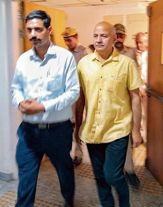
THE proposal to set up a “Social Media Communications Hub” sounds Orwellian. Indeed, it is. The Supreme Court’s observation that by setting up such a hub “we will be moving to a surveillance state” is well founded and a shot in the arm for privacy advocates who are fighting an increasingly difficult battle against electronic surveillance. Even as the role of social media in inflaming passions and passing on misinformation is widely accepted, the answer is not in massive governmental monitoring.
The immediacy of social media messages, their broad reach, and their ability to influence the public, sometimes with disastrous results, have posed challenges to law enforcement agencies as well as governments. Social media companies like Facebook and WhatsApp have also not been responsible enough in self-regulation. Facebook has been rightly criticised for sharing personal information of users with companies such as Cambridge Analytica. Indeed, it is only under a great deal of pressure that Facebook and other such companies respond grudgingly to requests from government agencies, especially non-US ones. All of these factors contribute to the problem of disciplining and policing what is necessarily an undisciplined sphere of interaction.
On the other hand, the Ministry of Information and Broadcasting has increasingly sought a monitoring role, which is at odds with its mission of dispensing information. It was only in April that it passed the infamous “Guidelines for accreditation of journalists amended to regulate fake news”, which it had to withdraw following widespread outrage. Therefore, its credentials do not inspire much confidence. The same could, however, also be said about the social media giants following revelations of how they have been selling user data “harvested” from their customers. Article 19(1)(a) of the Constitution ensures the fundamental right to freedom of speech of every citizen. Government agencies can and should never curtail it. India is among the largest users of Facebook and WhatsApp. It is high time that the government focused on ensuring data security of its citizens on such social media platforms by putting pressure on them to demonstrate their commitment to the privacy of Indian citizens, rather than engaging in a programme that involves monitoring users and moulding public perception.


























